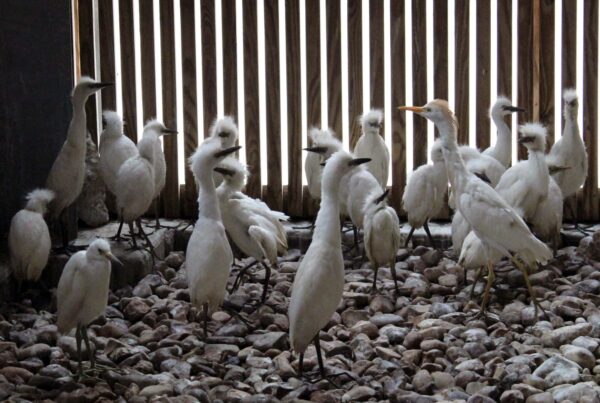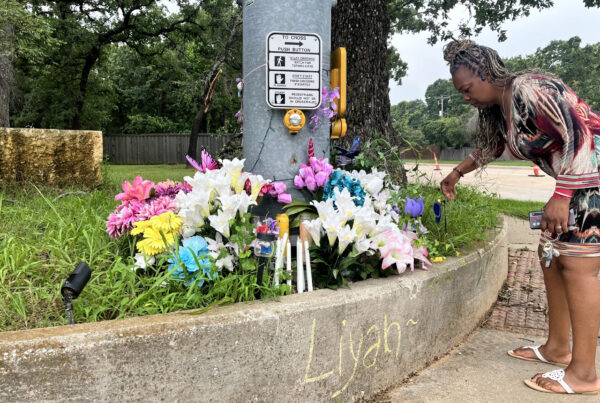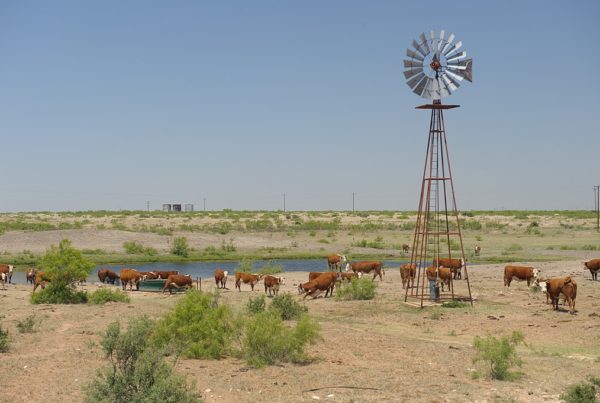If you know anything at all about Pulitzer Prize-winning author and journalist Joe Holley, it’s probably that he’s a native Texan. After all, that’s the name of his longtime column for the Houston Chronicle.
Holley’s dedicated his career to capturing the essence of the Lone Star State, and now he’s parlayed his writings into a new book with the same title.
“Native Texan: Stories from Deep in the Heart” delves into the rich tapestry of Texas culture, history, and, of course, its vibrant people. Holley joined Texas Standard to discuss the recently-released book. Listen to the interview above or read the transcript below.
This transcript has been edited lightly for clarity:
This is the second collection you culled together from your columns. I think the first was “Hometown Texas,” if I’m not mistaken.
Joe Holley: That’s true, yeah. With a Houston photographer, Peter Brown. I have probably written, you know, 400 or 500 columns since 2013. So there were quite a few to pick from.
Was there a particular story that made you think “I got to do this again”?
You know, the subtitle is “Stories from Deep in the Heart,” and that’s basically me – stories that I was really intrigued about or stories about my Texas family or my own Texas experience. That’s what reminded me that maybe there’s something else to collect.
Since the title of your column [is] “Native Texan,” what do you think are the most defining characteristics of Texas culture? What did you look for when you were writing your column?
You know, when I write the column, I’m looking for – and I don’t really think about it until afterwards – but I’m looking for interesting people like Billy Joe Shaver, and for lack of a better term, the particularity of place. Temple, Texas is different from Hempstead, Texas. Waco is different from Austin and so forth.
I’m looking for tales from the past, particularly stories that have been forgotten or were never known.
» GET MORE NEWS FROM AROUND THE STATE: Sign up for Texas Standard’s weekly newsletters
Now, given your background as a journalist, when you encounter one of these stories that you want to sort of amplify or talk up because it speaks to your heart, how do you try to balance those tall tales with what really happened?
You know, what really happened is usually as interesting, as outrageous, as colorful as stories that are made up.
I am a journalist. I don’t want to be caught up in spreading tall tales. I talk to as many people as I can to verify what I’m hearing.
But when you hear a story, for example, about a guy named Vander Clyde Broadway from what was the village of Round Rock, north of Austin, who became a tightrope walker and one of the most beautiful “women” in the world, whose act became the toast of Paris – his tightrope walking act. He changed his name from “Vander Clyde” to “Barbette.” When he was a kid, he practiced tightrope walking on his mother’s backyard clothesline. That’s a true story. I talked to his nephew.
You said the “toast of Paris.” You mean Paris, Texas or Paris, France?
I doubt that he ever performed in Paris, Texas. So, I mean the other Paris.
That’s what I figured. I know you’ve seen the bumper sticker that says “Native Texan.” Usually it’s in red with white letters. What does “Native Texan” mean to you? Is it about where you’re born or is it about something else?
It’s about becoming a part of the place.
I think every one of us, just about, in this state came from somewhere else. What’s interesting to me is that there’s a huge difference between an East Texas town and a West Texas town, or a Panhandle town or a town in the Valley. And yet every one of these people I talked to in those towns consider themselves Texans. They take pride in that.
This is maybe a journalist’s secret, but I’m a retired Houston Chronicle editorial writer – even though I continue to write regular editorials – you may have noticed there’s a lot to write about in terms of politics and policy. So the Houston Chronicle’s politics may not be the same as the person I’m talking to in Alpine. And yet we are both Texans and we both relish those kinds of things that I was talking about earlier, the place and the history and the people. I appreciate that.
» LOOKING FOR MORE TEXAS BOOK RECOMMENDATIONS? Follow Texas Standard on Goodreads
You mentioned a tightrope walker, which I think is an epic story. Could you share another with us? Maybe something from the book that you’d like to talk about?
Okay. Do you know Laura Bullion? Laura was born in Knickerbocker, Texas, near San Angelo, in 1876. Churchgoing family. They made the San Angelo Standard-Times one year when they raised a prize-winning sweet potato weighing five and a half pounds.
Laura was not interested in raising potatoes, sweet or otherwise, so she changed her name to Della Rose, moved to San Antonio, worked in a bordello and met a fellow named Butch Cassidy, and Laura – aka Della – became a full-fledged member of Butch Cassidy and his gang.
Laura was not one of those outlaw women who would hold the horses while the guys did the shooting and the robbing. When the Knothole Gang robbed the trains, there she would be dressed as a man, probably, and likely to be the one muttering, “stick ’em up” to terrified passengers. That’s Laura Bullion.
What’s interesting is that those stories are out there, but you have to dig just a little bit to find them. And they’re just wonderful.
What do you think they tell us about Texas today? I mean, a lot of these stories sort of lean into some of the stereotypes about Texas – you know, the quirkiness. What do you think they tell us about Texas today?
Sometimes it concerns me because I think either newcomers or we, Native Texans, lean into the stereotype.
There are stories, known or otherwise, that tell us about another type of Texan who are kind to their neighbors and who are interested in building community that need to be told as much as these stereotypical Texas stories.
You set out to do that with this book? I mean, is this something conscious?
Yes, it is. And part of it is to find stories about Black Texans and Native Americans. There’s a column, for example, about Black Seminoles, which is an amazing tale and a true one that a lot of people don’t know about. So I’m looking for those kinds of stories to show.
» RELATED: ‘We still come together’: Juneteenth gathering highlights traditions of Black Seminoles
How do you feel about the future of Texas right now? Are you optimistic or are you more pessimistic? I mean, there are a lot of opinions about the changing landscape, if you will.
I suppose I’m sort of in the middle.
This is a growing state – a state with all kinds of opportunities and possibilities. I worry sometimes about politics, and I hope maybe newcomers to this state can both appreciate the past and help us make it an even better state.
You probably know the writer Annette Gordon-Reed. In her book on Juneteenth, she writes about how she herself is a native Texan and Texas, for her, is like family. You know, families infuriate us sometimes. And yet they are our family. And that’s what Texas is to me.













